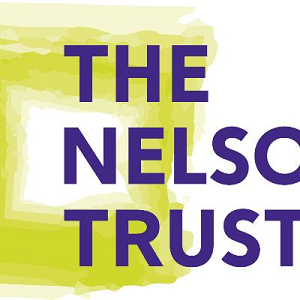Drug & Alcohol Rehab in Gloucestershire

How Does Rehab Work?
Rehab is the process that helps individuals in working towards restoring balance and well-being. Rehab focuses on addressing the patient holistically with individual therapy aimed at resolving addictive behaviours. With guidance from a professional therapist or counsellor, coping mechanisms are taught and individuals can access much-needed care. Strategies deal with relapse prevention and clients can be assigned to an extended inpatient programme or move to an outpatient programme. With inpatient rehab (residential rehab), individuals will reside at the rehab centre for the duration of treatment. Outpatient services are an alternative option in which clients will attend daily/weekly sessions for therapy but will not attend a full-time programme. There are both free and paid outpatient services available within the UK.
What Happens During Residential Rehab?
Taking the brave step towards recovery starts with rehabilitation. It is a process, and it takes time but with dedication and support relapse can be prevented. If you’re unsure about what rehab entails, we provide a breakdown of what to expect.
Rehabilitation begins with an assessment completed by an experienced medical professional. The goal is to investigate your history of substance use, and whether pre-existing medical conditions are present. This includes any comorbidities such as mental health disorders that require specialised treatment.
An assessment is followed by detox. Detox is a formal process and is performed by a residential rehab or at home with support from a medical professional (outpatient services). During this period, individuals abstain from drugs and/or alcohol use until the drug/alcohol is no longer present in the system. Because of the difficulties associated with withdrawal, a medically supervised detox from drugs and alcohol is recommended.
Therapy is an important part of the rehab process and every aspect of treatment should be tailored to address individual backgrounds, substance dependencies, and circumstances. Interventions can range from private counselling and cognitive behavioural therapy to building coping strategies, life skills, and attending group meetings.
1. Assessment

For any person entering rehabilitation, a medical assessment must be performed. It is a standard procedure meant to put your mind at ease as the specialist looks for specific behaviours, previous mental health problems, and general health. In an inpatient programme, it is expected to have an admissions screening performed by telephone before booking you into treatment. Telephone assessments allow the treatment centre to determine the right programme for your needs. It also provides staff with information to individualise support services during detoxification.
To help you or someone you know, receive the best possible therapy for addiction and substance use, it is important to receive an individual assessment by a dedicated professional. The assessment will aid the course of therapy including treatment for all those with comorbid illnesses such as anxiety.
2. Detox

Detox involves the cessation of drugs and alcohol from the body. With professional care, it is safely facilitated and is most commonly monitored in a private rehab because of risks associated with withdrawal symptoms.
Medical detox is often recommended because it allows medical staff to oversee withdrawal symptoms that may develop. Withdrawal from drugs/alcohol can be uncomfortable and relapse may occur if not managed within a treatment centre facility. Medically assisted detox can ease the process of withdrawal by supporting clients and providing medical treatment to limit withdrawal symptoms. During an individual assessment, a professional will determine which approach is best suited to a comfortable detox and entry into treatment thereafter.
3. Therapy

Therapy involves skill building, coping strategies, and identifying the reasons behind addiction. It can be delivered in an inpatient or an outpatient setting, each offering its benefit and potential drawbacks.
Step by Step Process for Residential Rehab
To understand your medical and mental health history.
Arrange a suitable date to begin your journey to recovery.
Begin the managed withdrawal process from substances including alcohol.
To understand the root cause of addiction and how to overcome it.
Aftercare is provided to help manage the risk of relapse.
To help heal the wounds that addictive behaviour has caused others.
Find your Nearest Rehab Centre in Gloucestershire
The nearest rehab centre is Abbeycare Gloucester.
Address: Abbeycare Gloucester, Main Rd, Minsterworth, Gloucester GL2 8JG
Call 0333 4444 432 to discuss your alcohol or drug rehab requirements and any other questions you may have about the process of residential rehab.
Outpatient Addiction Services in Gloucestershire
To make an informed decision on which form of treatment will help you in your journey to overcoming addiction, it is important to understand the differences between outpatient and residential rehabilitation. Outpatient care can be very useful as it offers a flexible and cost-effective alternative to inpatient treatment.
During an outpatient programme, you do not have to stay at a facility to receive treatment. It is a more flexible programme for those who need support and therapy but do not want to fully commit to an around-the-clock residential programme. The purpose of outpatient care is to help you benefit from therapy while attending to family, work, and other lifestyle commitments.
Private Outpatient services involve therapy and counselling sessions delivered by a therapist/counsellor. Sessions can last up to 90 minutes. Free addiction treatment does exist via one of the many reputable charities in the UK (Turning Point), but it does not provide the same individualised care that private services provide.
The Benefits of Outpatient Services
A private outpatient programme is tailored to address client needs. The aim is to deliver a quality standard of therapy and introduce those struggling to the coping strategies they need to avoid relapse. – outpatient programmes are also considered because it allows individuals to remain employed or to tend to family commitments while receiving care. – These services are more affordable compared with residential treatment.
The Challenges of Outpatient Services
Outpatient services will always have an important role in rehabilitation but for drug or alcohol addiction, remaining in the same environment with access to substances and regular social circles may risk relapse. Furthermore, free outpatient services provided by the NHS or UK-based charities do not provide the same tailored programme that private outpatient services provide, and there is typically a waiting list before you can be accepted for treatment.

How Much Does Rehab Services Cost in Gloucestershire?
Alcohol and drug rehab within a residential setting can cost around £1500 – £4000 a week. Residential rehab is one of the more expensive types of treatment for alcohol or drug addiction. For free and affordable services, charity organisations and government-funded services offer programmes for all individuals seeking recovery.
One example of a free addiction treatment service is that of Turning Point. Turning Point offers a variety of structured support programmes to help with both alcohol and drug problems. It is a self-referral service. Aside from charities such as Turning Point, you may contemplate private therapy or one of the many free support groups including Narcotics Anonymous (NA), Cocaine Anonymous (CA), and Alcoholics Anonymous.
Support Groups in Gloucestershire

Gloucester Share
Christ Church C of E, Brunswick Rd GL1 1JS

Gloucester Fellowship
Christ Church, Brunswick Rd GL1 1JS

Gloucester Lunchtime
Christ Church, Brunswick Rd GL1 1JS
The Pros and Cons of Seeking Treatment in Your Local Area
Pros
1. You are familiar with the area which may provide a layer of comfort/safety.
2. Family or friends can easily travel to visit or are close by.
3. You may save on the costs of travelling long distances for addiction treatment, or free services may only be offered in your area of residency.
Cons
1. A local environment means access to drug dealers or other triggers. This is more of a concern if you opt for outpatient programmes.
2. Failing to consider locations outside your local area could mean missed opportunity for more valuable and rewarding programmes.
3. Addiction treatment programmes nearby do not always provide the best standard of treatment.
In the event you are unsure about a particular addiction treatment service, you can look to the CQC website for more information including a rating of that service.


